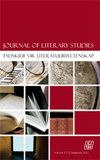诗歌的见证:亚伯拉罕·苏茨凯弗和大卫·弗拉姆的大屠杀再现
IF 0.1
4区 文学
0 LITERARY THEORY & CRITICISM
引用次数: 0
摘要
本文讨论了亚伯拉罕·苏茨凯弗的大屠杀诗歌选集,以及大卫·弗拉姆的几首大屠杀诗歌,这些诗歌集中体现了历史力量如何塑造个人生活,突出了地点和经历的差异如何影响了他们的创造性产出。在此基础上,通过对诗人隐喻和语言选择的深入分析,对几首诗进行了比较。这篇文章肯定了意第绪语在其使用者几乎全部灭绝的情况下仍然具有重要意义,也证实了诗歌是一种见证形式。虽然两位诗人都出生在俄罗斯帝国,但到第二次世界大战爆发时,苏茨凯弗成为立陶宛维尔纳犹太人区的见证者,而弗拉姆则在南非的约翰内斯堡。苏茨凯弗的诗歌提供了个人的、瞬间的、局部的焦点,并揭示了眼前可怕的现实,而弗拉姆的象征性反思与杀戮场上发生的事情搏斗,因此照亮了更广阔、更全景的视野。他们还强调他的同理心。通过见证,这些诗歌提供了一个舞台,讲述犹太人的苦难,并使大屠杀鲜活可见。为了抵抗对过去和现在的失忆,诗人也纪念了受害者。本文章由计算机程序翻译,如有差异,请以英文原文为准。
The Witness of Poetry: Holocaust Representation in Abraham Sutzkever and David Fram
Summary This article discusses a selection of Holocaust poems by Abraham Sutzkever together with several written by David Fram as they epitomise how historical forces shape individual lives, highlighting how the differences in location and experience influenced their creative output. In order to do so, it locates the poets physically and aesthetically, and then compares several poems through in-depth analyses of their choice of metaphor and language. Affirming the continuing significance of Yiddish in the face of the almost-total annihilation of its speakers, the article also validates poetry as a form of testimony. Although both poets were born in the Russian Empire, by the time World War II broke out, Sutzkever became a witness-participant in the Vilna Ghetto, Lithuania, while Fram was in Johannesburg, South Africa. Sutzkever’s poems provide personal, instantaneous and localised focal points, and shed light on the immediate horrific reality, whereas Fram’s symbolic reflections wrestle with what happened in the killing fields and so illuminate a broader, more panoramic view. They also emphasise his empathy. By bearing witness, these poems provide an arena in which to address Jewish suffering and keep the Holocaust alive and visible. In resisting amnesia of what once was and is no more, the poets also memorialise the victims.
求助全文
通过发布文献求助,成功后即可免费获取论文全文。
去求助
来源期刊

Journal of Literary Studies
Multiple-
CiteScore
0.50
自引率
0.00%
发文量
0
期刊介绍:
The Journal of Literary Studies publishes and globally disseminates original and cutting-edge research informed by Literary and Cultural Theory. The Journal is an independent quarterly publication owned and published by the South African Literary Society in partnership with Unisa Press and Taylor & Francis. It is housed and produced in the division Theory of Literature at the University of South Africa and is accredited and subsidised by the South African Department of Higher Education and Training. The aim of the journal is to publish articles and full-length review essays informed by Literary Theory in the General Literary Theory subject area and mostly covering Formalism, New Criticism, Semiotics, Structuralism, Marxism, Poststructuralism, Psychoanalysis, Gender studies, New Historicism, Ecocriticism, Animal Studies, Reception Theory, Comparative Literature, Narrative Theory, Drama Theory, Poetry Theory, and Biography and Autobiography.
 求助内容:
求助内容: 应助结果提醒方式:
应助结果提醒方式:


